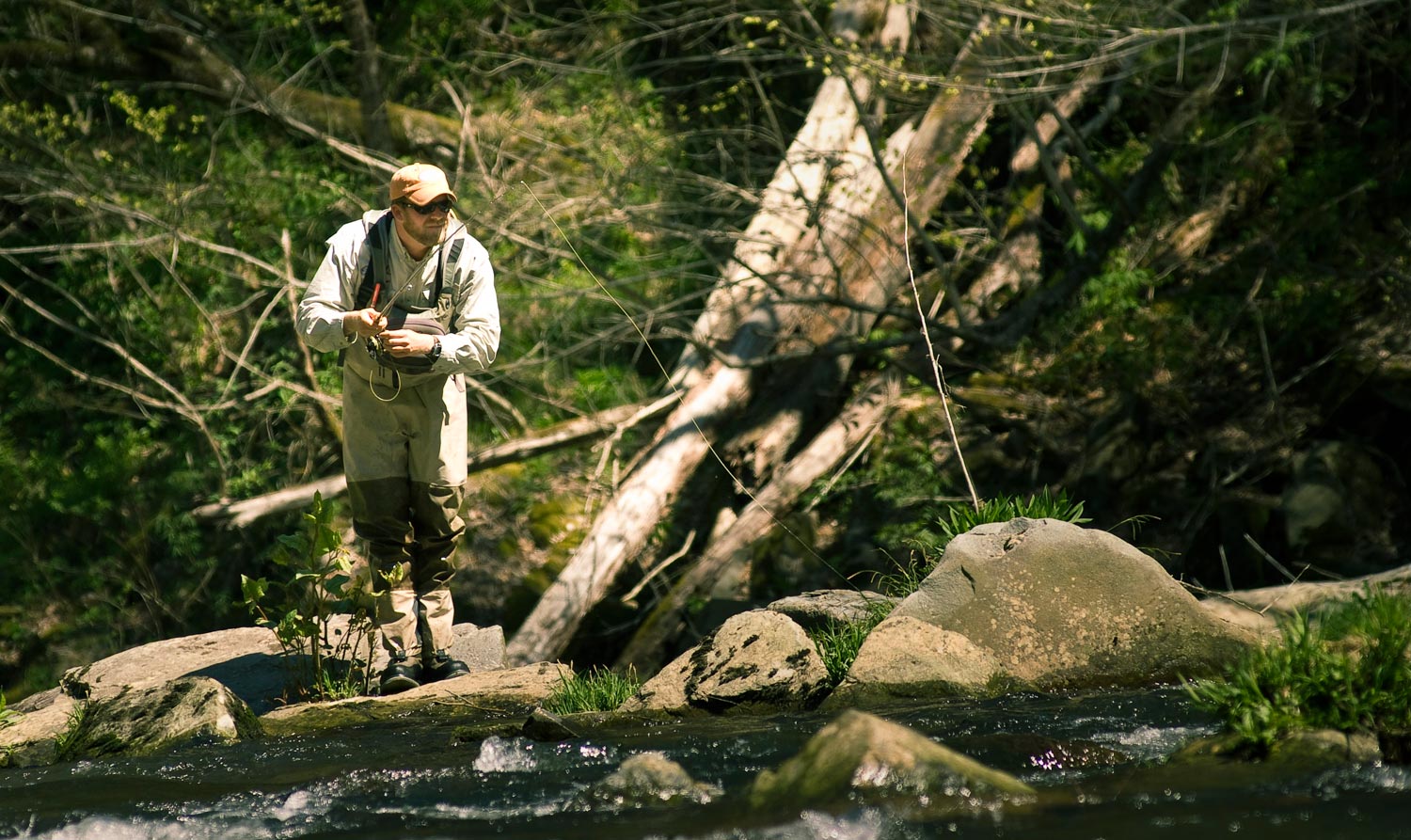By Louis Cahill
Science is finding evidence that the ancient practice of fasting offers a host of mental health benefits.
I’m starving. Quite literally. I’ve been on a pretty intense diet recently and as of today have lost 55 pounds in a little over four months. There are many health benefits to keeping that weight off but I really believe it’s helping me be a better angler, if for no other reason than I can hike to better water. In all seriousness though, I’ve seen a difference and it got me doing a little research. It seems I’m not alone in the idea that fasting changes your mental performance.
My initial theory was this. If I am hungry when fishing, my natural predatory senses could be enhanced. My body needs food and my mind could be sharpening my senses to help me provide it, helping me spot fish and focus on catching them. After doing some reading, I think there’s merit in that idea but there may be more going on.
Studies have shown that fasting can finding improvements in mood, mental clarity, vigilance, a sense of improved well-being, and sometimes euphoria. An interesting article from “Mind The Science Gap” gets into some of the physical details.
“The mood-boosting effects of fasting may be an evolutionary adaptive mechanism for periods of famine. In other words, when food is scarce our bodies release chemicals to help protect our brains from the negative effects. These chemicals can put us in a good mood–but, as you know if you have skipped a meal or two, it takes a few days. During the first week of fasting, the body begins to adapt to starvation by releasing massive amounts of catecholamines including epinephrine (adrenaline), norepinephrine, and dopamine as well as gluco-corticoids, steroid hormones involved in regulating the immune response and glucose metabolism. All of these chemicals are also released during the infamous ‘fight or flight’ response. After a while, our body responds to this stress through a boost of feel-good and protective chemicals.” -http://www.mindthesciencegap.org
There is also research which suggests that these chemical changes in the brain help in the long term to ward off neurodegenerative disorders like Alzheimer’s and Parkinson’s, so the number of fish you catch may not be your greatest concern. Groups like Wefast are popping up around the globe to support and promote the health benefits of therapeutic fasting.
I’m not suggesting that you take on a Gandhi like hunger strike for fly fishing, but maybe try skipping lunch on a couple of fishing days. See if you feel a difference. There are several types of fasting which are not extreme and you may find some benefit from it, even if it’s just looking better in your waders. Countless cultures and religions have used fasting as a way to seek higher states of mind. Why not fly fishing?
Let us know what you think.


Fasting has a long and varied history. It’s benefits create a long and interesting list. The reasons to fast are also varied … but, though I have been a practitioner of faster for over 50 years, I have never heard a discussion on its potential for enabling fishing. However, it is not a difficult concept to sidle up next to; not at all. I would consider a couple of other reasons for WHY it is helpful:
1) Health Improvement – the overall improvement from long-term fasting (not long time span fasts, but regular fasting during the year (ie, 10-15 times) ) are many. Blood-pressure stabilization (steadiness, stamina, mood control, clarity, etc.); Weight-loss – less of ‘you’ to move (in every direction and venue); Over-all health (increased stamina, better mood, stronger, sensory clarity, etc.)
2) Self-Worth – when a person ‘feels better, they feel-better about themselves’. The benefits of such ambient and internal health are huge and affect every aspect of life.
3) Spiritual Connection – reducing ones existence to a non-intake, shakes the mental perception of WHOM we are .. in the over-all scheme of LIFE. This is a very good perspective to gain; regularly. Humility is NOT a weakness, rather it is the greatest source of strength a human can tap into.
Nothing will ever replace sheer practice for making your casts better. But if you are feeling better, healthier, most positive – then both the time and desire will be available to make that practice both regular and positive.
So, yes. Fasting – as a regular part of our annual living-cycle – can become a most helpful, and welcome tool. The benefits are worth the ‘grumbling stomach and dry mouth’.
I guess this kind of thinking could result in a new book, ‘The Fast Cast’; or the ‘Fasting Hook-n-Bullet’ .. among, others. -AOF
Arthur,
Just curious as to how long each of these “10-15” fasts a year are for you. No food for a day, two days…? I’m assuming your drinking water throughout these fasts as well right?
Thanks!
Drinking water is super important. You should drink more water than normal. The longest I personally fast is 7 days.
Good food for thought!
I will be the first admit that I’m a packing a few extra pounds, as I’ve gotten older the pounds have packed on. I’m still very physically active, both fishing and doing other things, but If I lost 30lbs that would be Ideal. I know that the Fly fishing culture has not helped. Drinking good and eating good, sometimes to good.. The play hard work hard thing only gets me so far when work consists mostly of sitting behind this computer at the fly shop writing emails, and helping a few customers a day. I’m not quite living up to my hunter gatherer potential. So I think some fasting, and maybe a few less beers would do me good.
I can’t speak to fasting, but learning what your body “reacts to” and eliminating those things from your diet can be a remarkable thing physically and mentally.
Try the Paleo Autoimmune diet. Seriously. Forget the fads and figure out what foods effect you. I eat no grain but rice. Beans, corn, tomatoes (nightshade family) are out.
Lost 40 pounds, eliminated inflammatory related problems with my feet and on the whole I have been much healthier.
So all of that translates into better fishing!
Congratulations Louis! That’s no small feat. Now…if i could only get past Level Hangry…
What if you are a C&R fisherman and you fish hungry? Really hungry. I have and I’ve caught more fish than usual in one of the spots I usually fish. The problem I had was the almost overwhelming desire to bring all of them home and put them in a frying pan. I’m not trying to be funny or sarcastic just being honest.
Interesting take, Louis. And congrats on the weight loss!
I’ve always found that fishing while hungry actually decreases my focus, especially in the colder weather. Being fueled up helps keep my mind on fishing and not my growling stomach, but I can see how the science might explain that if I wait long enough between meals my focus will eventually rebound. Now, I also have found that my fishing peaks at about 6 beers and from that point onward there’s a slow and steady decline!
Pingback: Fasting: an end to slim pickings? | Taunted by Waters
well I never eat breakfast on fishing days, so I’ve got that going for me